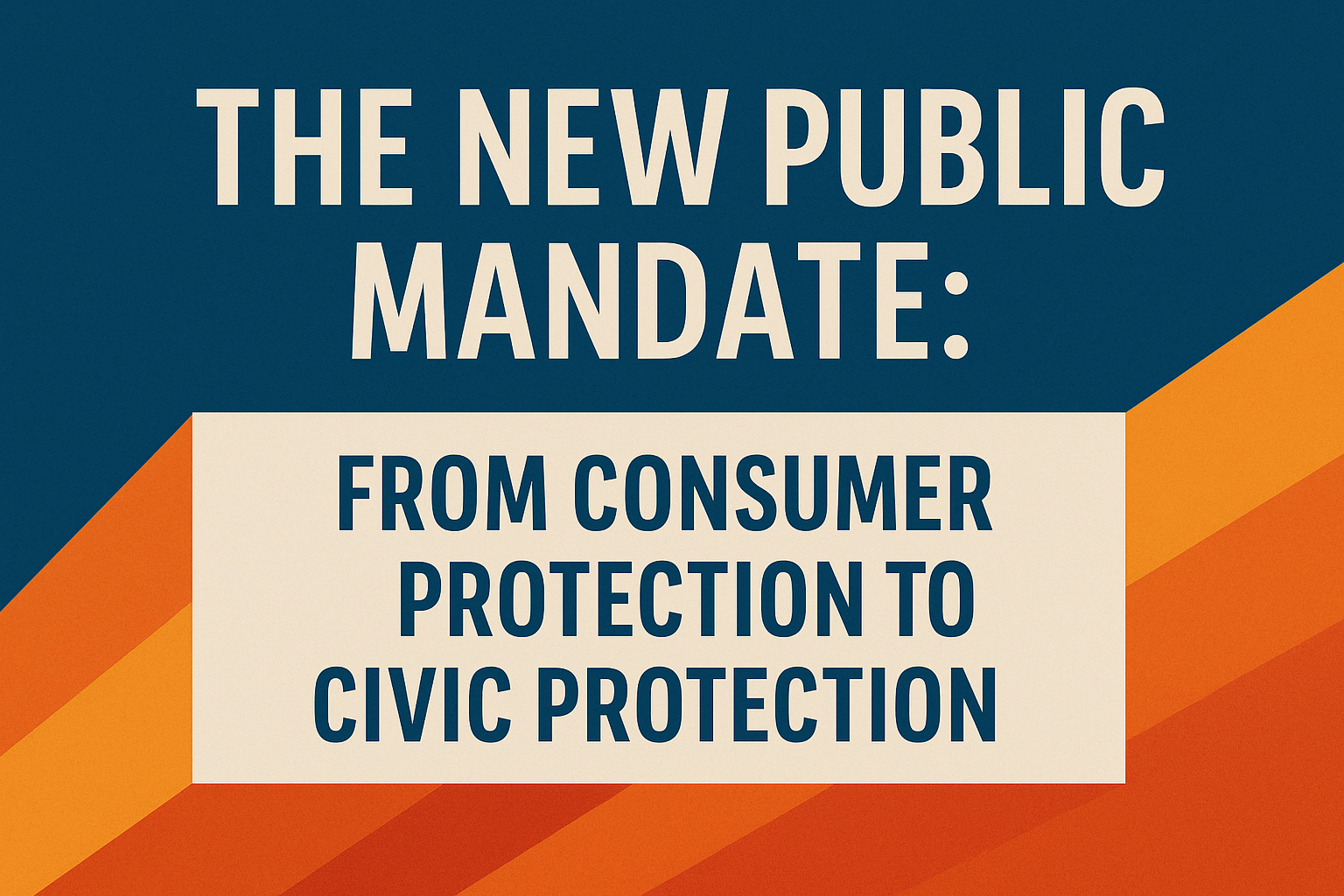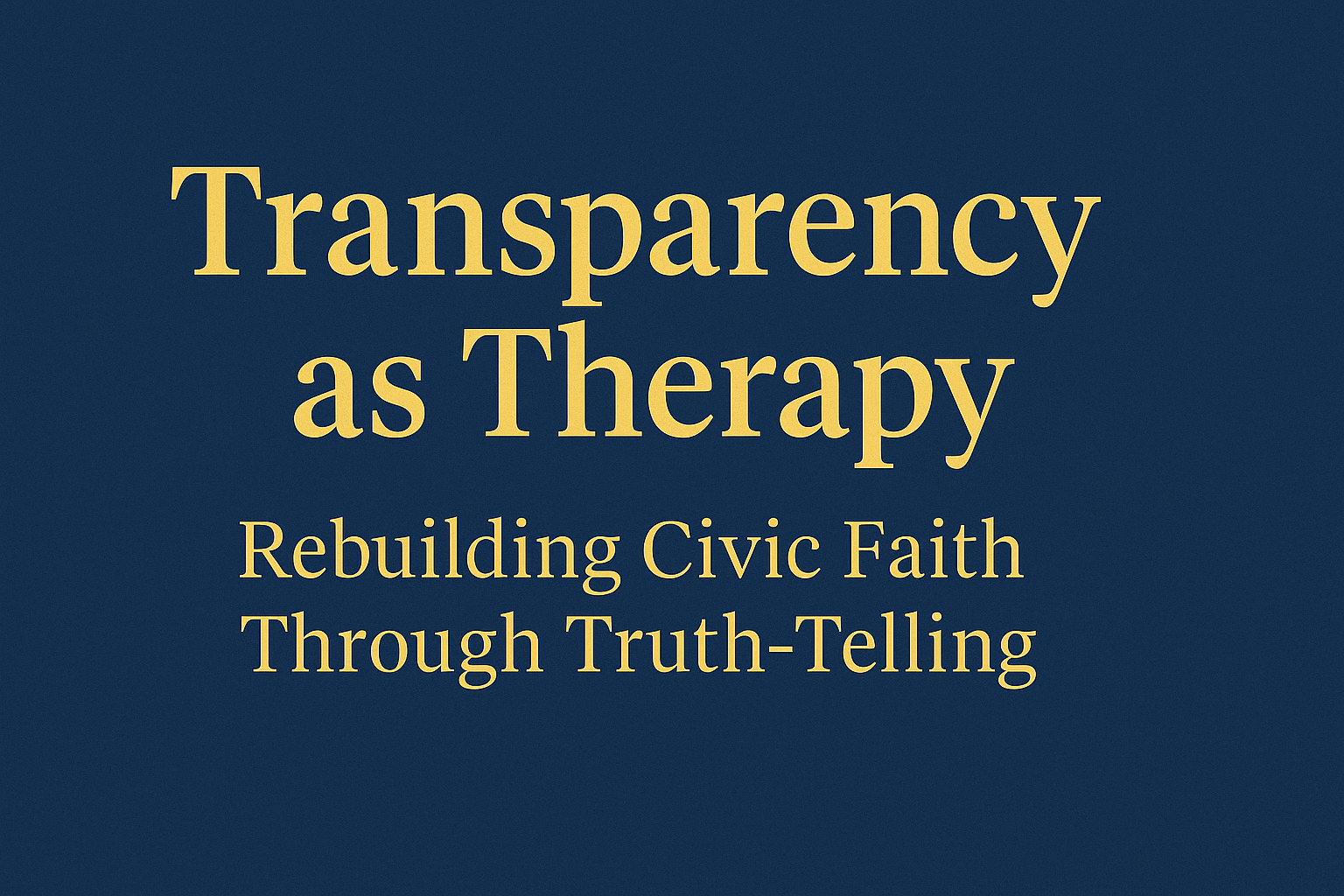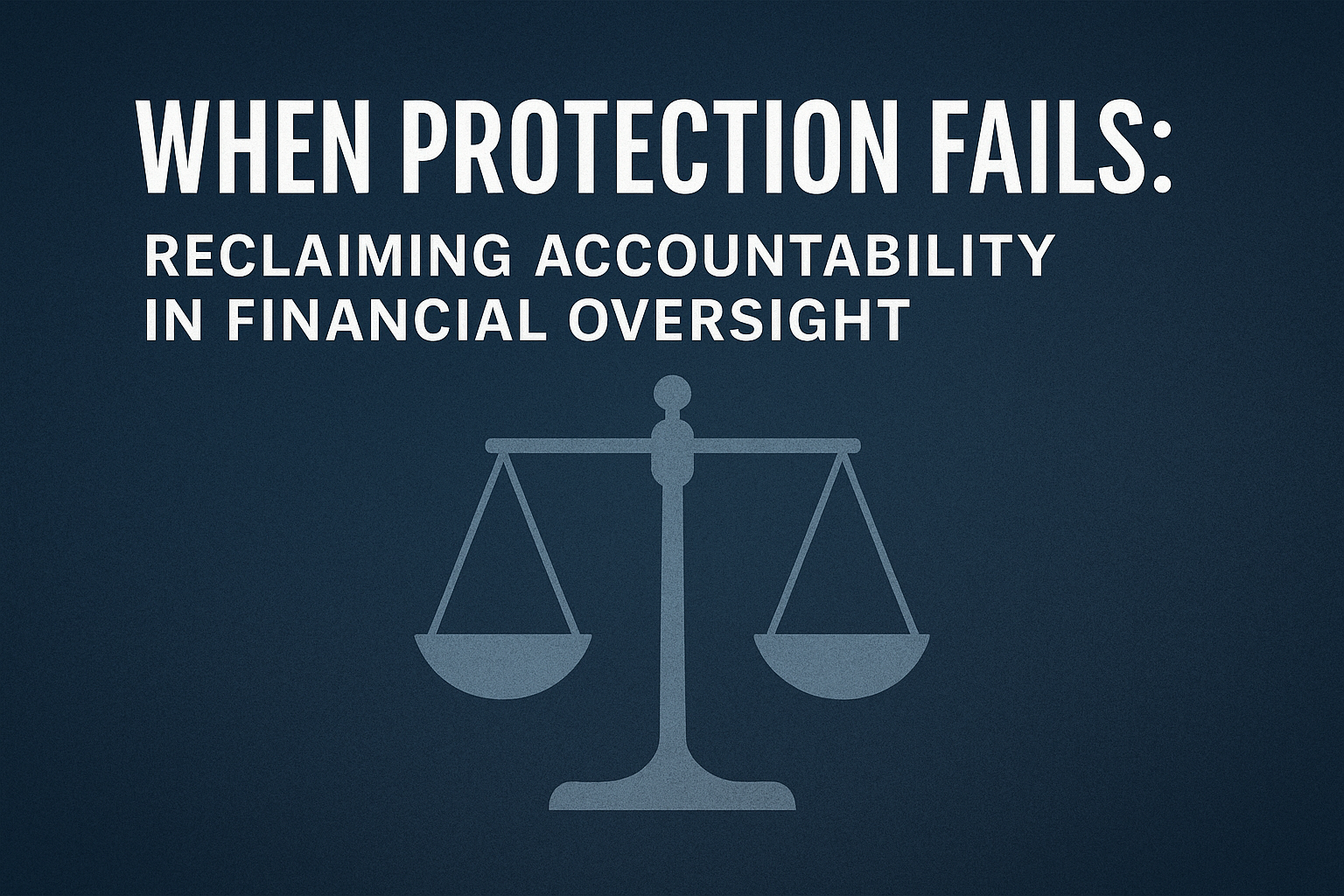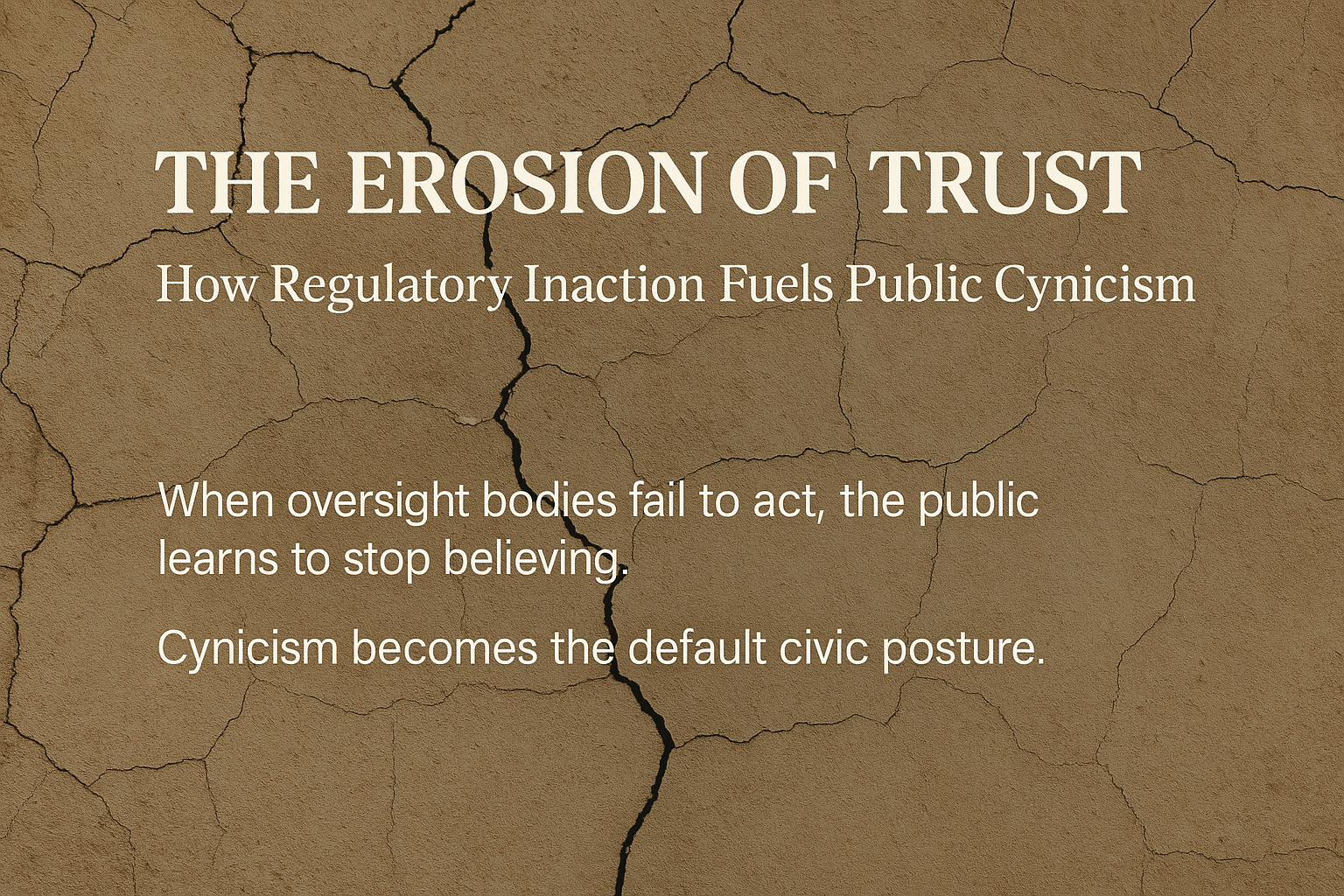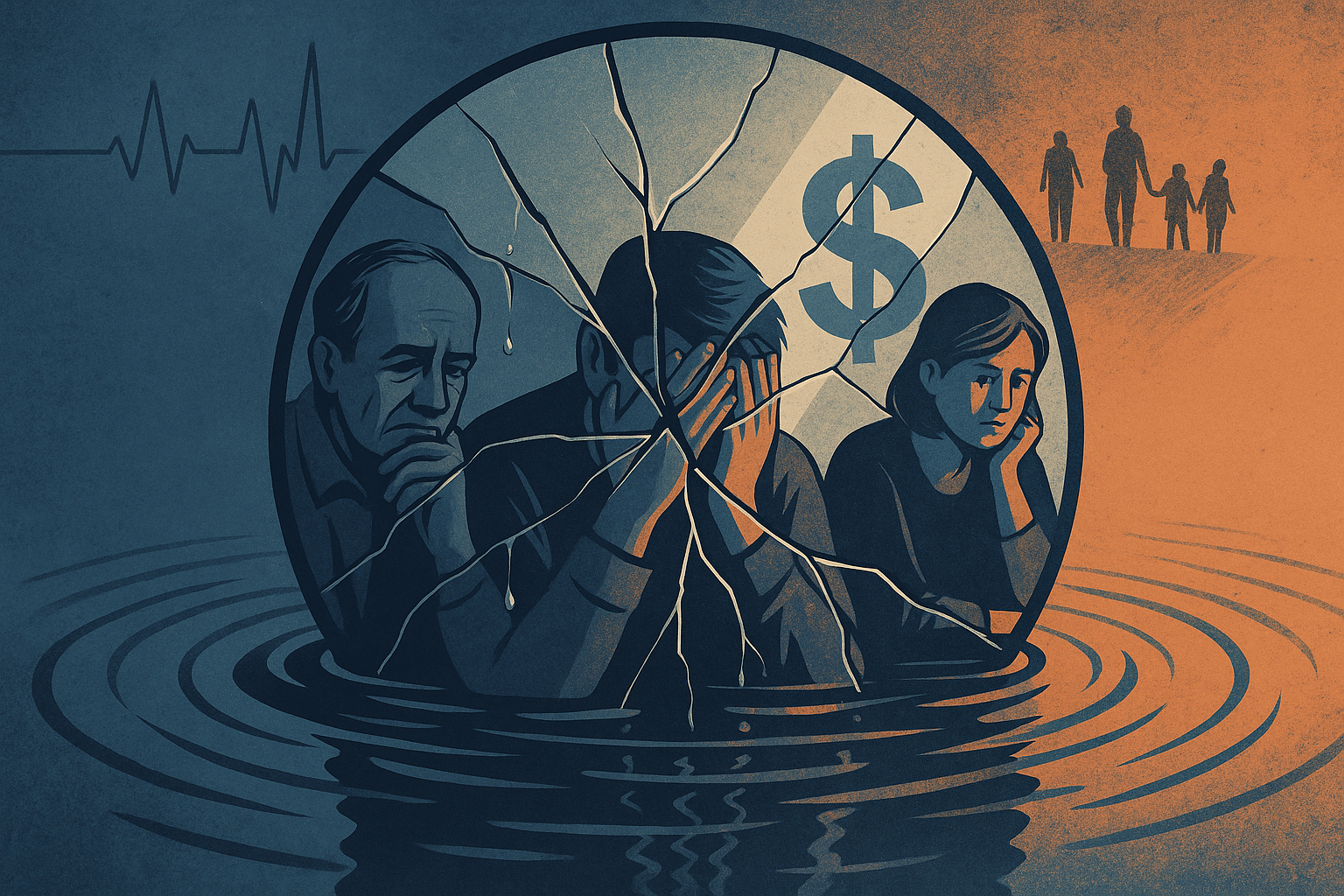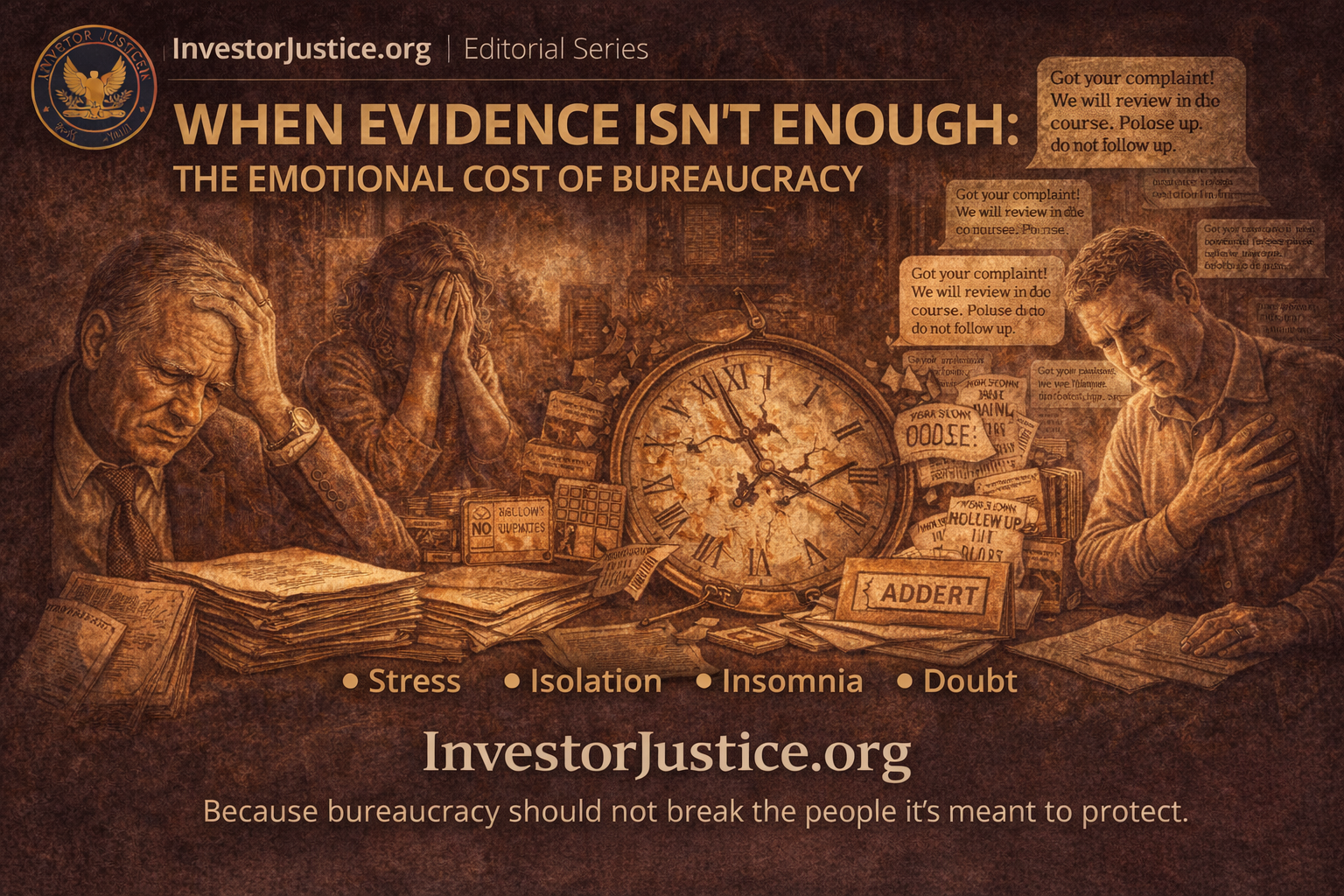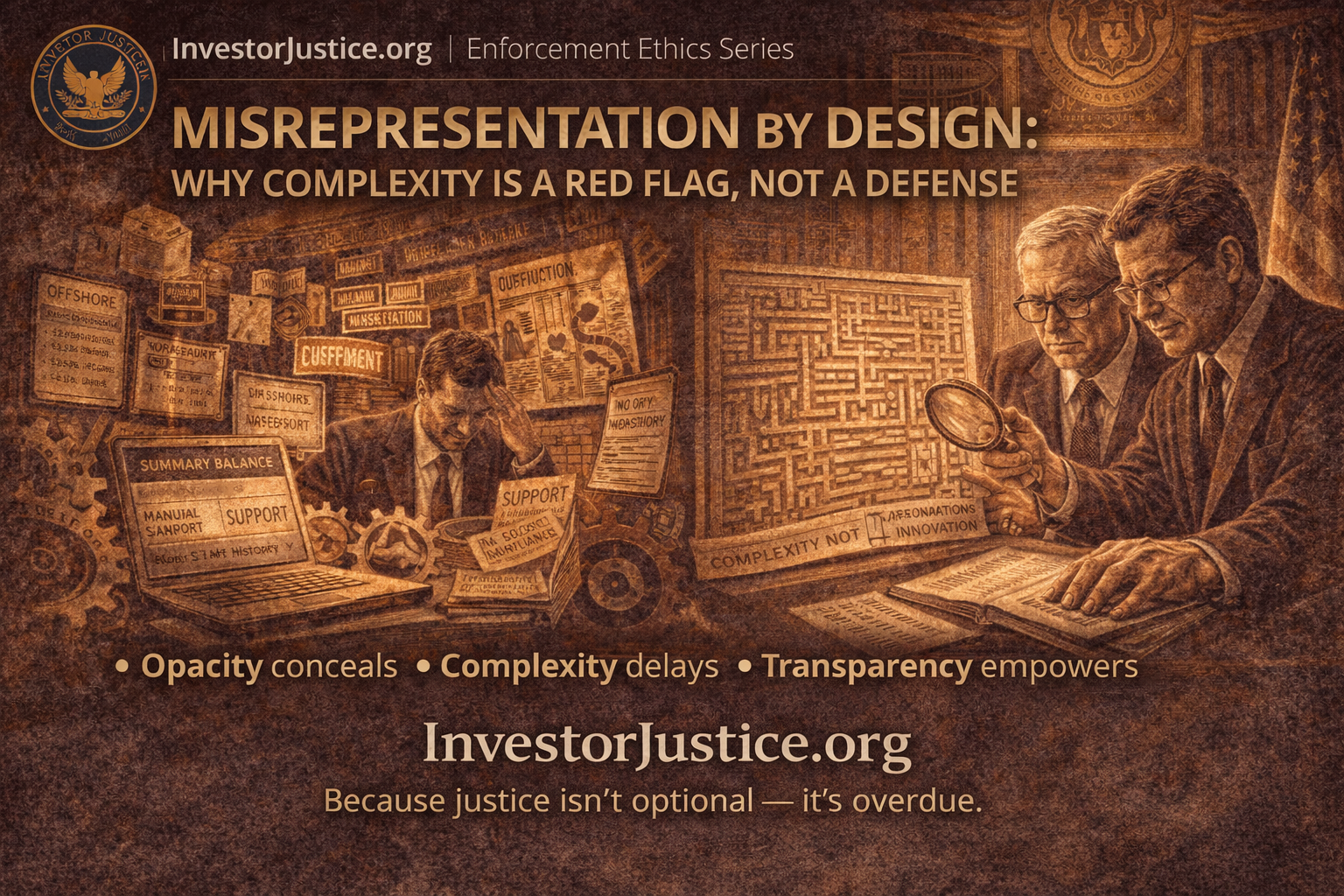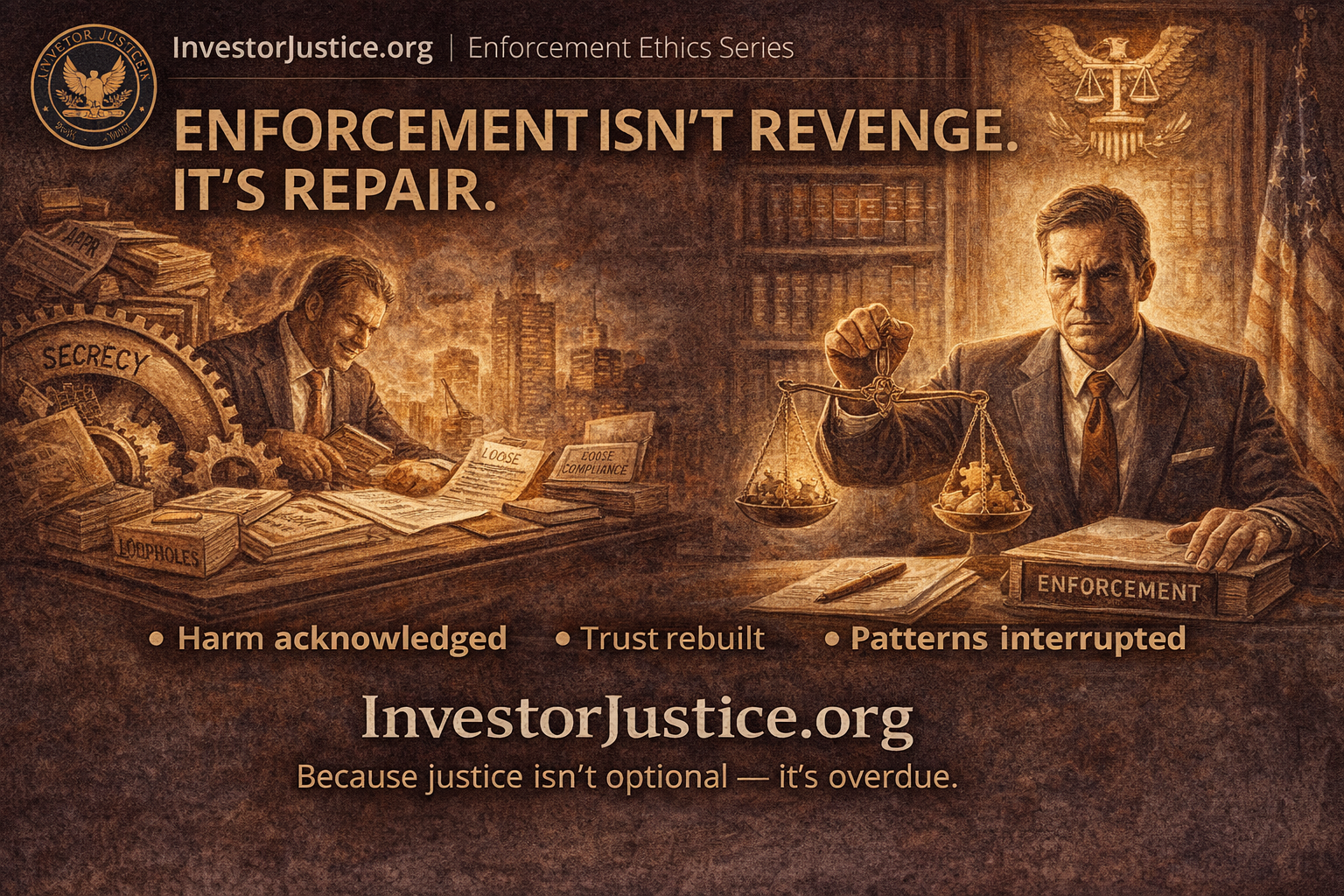Table of Contents
InvestorJustice.org | Civic Relevance Series
Consumer protection was never meant to end with consumerism.
The real purpose of oversight isn’t to regulate transactions, it’s to preserve trust in the systems that define daily life.
When financial harm becomes widespread, it doesn’t just hurt individual savers; it erodes collective faith in governance itself.
The next era of accountability must expand beyond protecting purchases.
It must protect the public.
The Civic Shift
We once assumed that consumer protection was enough.
If investors were warned, if products were labeled, if regulators intervened after harm, the job was done.
But those boundaries no longer hold.
Financial systems, data platforms, and globalized investment structures have blurred the line between private loss and public consequence.
When transparency fails, it is not just a consumer event, it is a civic failure.
The new mandate is clear:
Protecting the public requires more than rules; it requires responsibility.
From Reaction to Prevention
Traditional oversight is reactive: a fine, a settlement, an after-the-fact admission.
Civic protection is preventive: it values data integrity, visibility, and early intervention.
Preventive regulation means:
- Real-time transparency in corporate reporting.
- Open data for public audit and civic education.
- Shared responsibility between regulators, journalists, and citizens.
Every institution that touches public trust, from banks to newsrooms, is part of the same ecosystem of prevention.
Accountability as Civic Infrastructure
Roads and bridges connect people physically.
Accountability connects them civically.
When oversight becomes predictable and transparent, confidence returns to the marketplace and the democracy it supports.
That stability has measurable value; in investments, in institutions, and in lives.
Consumer protection safeguards individuals.
Civic protection safeguards society.

